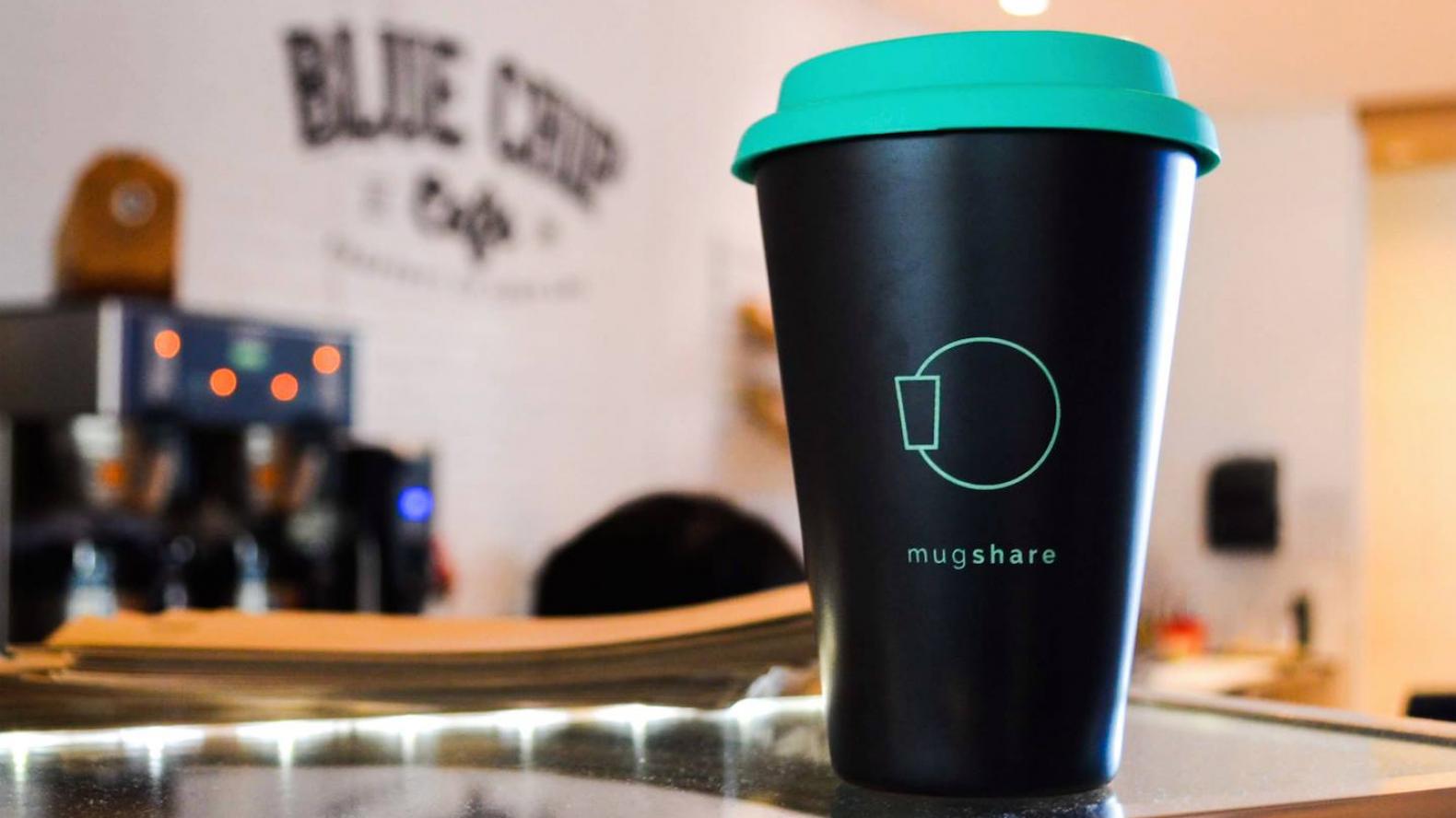
This article by Yael Boyd originally appeared in The Ubyssey on 15 March 2016.
According to the UBC SEEDS Sustainability Program, at least 1.5 million disposable coffee cups are generated on campus each year. In 2015, UBC’s largest and most active student sustainability organization, Common Energy, conducted a waste audit on the old SUB.
They found similarly discouraging results. In the one day of data collection, 490 coffee cups were found with only 17 per cent correctly sorted into the proper waste bins. Although UBC coffee cups are recyclable, the quantity of cups consumed and the level of incorrect sorting is highly unsustainable.
This sustainability concern led Common Energy’s campaign team to come up with the idea of a Mugshare program. After a year of brainstorming, Common Energy recently launched a Mugshare pilot project, funded by the AMS Sustainability Project Fund.
The program has a simple and effective set up. An interested student can sign up and pay a five dollar deposit fee at one of Seedlings, Sprouts or Agora Café, the three participating cafes, and receive a Mugshare card. Student can take the card to the participating cafes and receive a hot beverage in a reusable travel mug. The student can take the mug to go and within three days, return the mug to any of the cafes where they will wash it for you.
According to George Radner, campaign team director, signing up for this Mugshare pilot program provides a “convenient, money saving, environmentally friendly alternative to buying so many disposable coffee cups.”
Alison Fung, fourth-year environment and sustainability program student and another team director, also believes that the Mugshare program will help target behavioural changes towards only using reusable mugs. She also notes that starting the program with Seedlings, Sprouts and Agora could encourage participants to go to these sustainability-focused cafes.
Coffee and tea at Seedlings/Sprouts is also only 75 cents and at Agora only $1.25, cheaper alternatives to many other coffee and tea sources on campus. Ernielly Leo, a third-year international relations and geography student as well as promotions and outreach coordinator at Sprouts, is especially enthusiastic that the Mugshare program promotes Sprouts’ values of convenient and accessible options for acting and consuming sustainably. On top of these short term benefits from the pilot program, Common Energy has even grander long-term goals.
The long term goal of Common Energy’s pilot program is to test the project's viability and ideally one day see a campus-wide mug-share system. The AMS for example, according to Fung, has expressed interest in the program as long as they see feasible results from the pilot project. To make the project successful, Common Energy has teamed up with the UBC SEEDS Sustainability Program, which has connected them with the Applied Science (APSC) 262 class on society and technology.
According to Courtney Collins, a second-year computer engineering student in the APSC 262 class, her group’s main contribution will be “working with Common Energy to do research into life cycle analysis of disposable versus reusable cups and technical solutions to keeping track of mugs being lent out.”
Collins believes that the biggest challenges will be getting students on board with the program as well as scaling the program up while keep it convenient and feasible.
Nevertheless, Liska Richer, manager of the UBC SEEDS Sustainability Program, believes that this pilot — and eventual campus wide program — has the potential to help UBC reach its zero-waste goals more quickly by reducing the amount of waste produced on campus. It also offers a new vision of how waste reduction can be performed within the bounds of the emerging sharing economy. Finally, it has the potential to blaze a trail for innovative solutions that start and are tested on campus, but can help solve real world challenges.